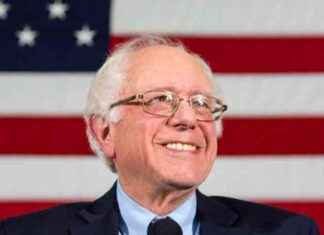In 1993 he founded the Alberdania publishing house and was president of the Association of Publishers in Euskera for 14 years. Translator and writer, Jorge Giménez Bech (Irún, 1956) was director of Linguistic Research of the Basque Government between 2013 and 2017. Yesterday he participated in a talk by the association ‘Gogoan-for a worthy memory’. He is well known in the Basque culture, but very few know what he says today. That ETA murdered his father, who was a civil guard, on October 9, 1982.
– You were a member of EIA and Euskadiko Ezkerra. They call him because they just killed his father. As soon as he arrives, his mother tells him: “Who do you support?”
– A location that was a great lesson. It was the moment of horror. That day I was at the EE headquarters, preparing the general campaign. They warned me and took me to my mother, in Irun. ‘Look what has happened as a result of what you think’. It was something much more human than political. Something that is said to a son, who is still your son. That’s why it was so shocking and why it has stayed with me for life. There was no aggressive tone. It is a question from a mother to a son.
– He recently wrote an article in which he brutally portrays how he felt…
– I tell that, in the midst of that horror, I came to feel like a murderer of my father. I wrote it because I perceived it at that moment, but my mother’s own placement gave me the antidote. I couldn’t think of myself that he had contributed to the murder in any way because he was going crazy. I realized right there that my own mother didn’t see it that way. It was a hot reaction, an exaggeration. I felt it. Her way of saying it at that moment, so subtle and so measured, was the antidote.
– Is there an immediate turn?
– At first I was completely disoriented. Everything known went to hell. All certainties. My relationship with the world linked to terrorist violence was already conflictive. In EE we were already against it and personally I was. We suffered some aggressions from that world. My party comrades supported me.
– The friends?
– Also some of my friends. In my environment there was distance. Even in some of the family. It was not an affective distance, but the subject was not touched.
– Do your friends know that ETA killed your father?
– The closest yes. I have never hidden it, but it is not something that I have been telling either. When he has played, both I and my brothers have said it.
– It was a very relevant historical moment. ETA (pm) had just dissolved a few weeks ago.
– He had been our reference. And we wanted to put land in between with our past. I wasn’t afraid to say it. We started talking about what we had done and not in poetic or epic terms, but real. There had been a long, virulent debate, in which we defended ending. My radical condemnation of terrorism is many years old.
– Basque culture was very quiet during the years of terror.
– In this publishing house a manifesto was written in the year 2000 – ‘Silence is not a shelter’, which rejected ETA – which had an interesting reception among editors and writers. 140 adhesions. The previous manifesto was that of ‘los 33’. Before we had had a passive and suffocating position. Collusion, justification or equidistance, in the best of cases, was daily. The nationalist left has used its presence in culture in Basque with clearly political motivations. We were silent for comfort. Who is silent out of fear has an excuse, ours does not. We were not children. We had projection and we could have made ourselves respected. We did not.
– What happened after the manifesto?
– Nothing happened. We were a month away from the Durango fair. It was a resounding text. Some did not sign: they wanted a certain equidistance. We had gone to many demonstrations against state or para-state violence, but not to the others. That is the moral error, the perversion that we assume. We did not want equidistances. And nothing happened.
– Were there other gestures?
– That depth, no. smaller acts. Some rejection of violence, but no public statements. Continuity was missing.
– You recently listened to Otegi in Aiete II. And he decided to write …
– Yes, but the idea really began to take shape a week before, when I saw ‘Maixabel’. It was a horse kick. I saw things that I have said or done. It gave me a terrible inner convulsion. All this that happened is the result of my inhibition. That’s how I felt.
– It was very hard with Otegi.
– I wrote that afternoon but corrected days later. The first version was angry, aggressive. My reaction was: that request you have made has nothing to do with what is needed. Thanks for doing it, I know what any step costs you, but it’s not that. Talking about this as a weather phenomenon is an insult. It wasn’t just a mistake, it was wicked. In that world they have not repaid their debt to themselves and to society. They still favor relativizing discourses. Because they fear that part of their people will drop out.
– He has signed the manifesto against returning to try the former leader of ETA Mikel ‘Antza’. Why?
– That topic has given me a lot to talk about in my environment. My signature is based on only one thing: I believe that it is something that has already been judged and received the degree of punishment that it deserved. Going back to the same thing I interpreted as a ruthless maneuver. I can be wrong. I think that, unfortunately, ‘Antza’ has not shown signs of empathy. But they are two different things.
– Seeing ‘Antza’ wrapped up in San Sebastian can hurt his victims.
– It can be painful for many people. And surely that photo made me think, more to me than others. They remain anchored at a point of no redemption. Maybe it was a mistake.
– He is the youngest of his brothers. Is this talked about at home?
– No, we never talk. Each one is in different positions. It is not questioned. People talk more and more naturally about our father, but alluding to politics would be a source of conflict. In those years we focused on supporting my mother. Until she, who was a very strong woman, gave way to her public projection.
– Excuse me, what projection?
– She was a PP candidate in Irún and president of the AVT in Gipuzkoa. We always maintained a mutual personal comfort zone. I took her to vote (laughs).
– Did she or you have the need to talk about that first sentence again?
– If either of us had that need, we silenced it. We had a very good relationship. She was a strong and generous woman.
7












